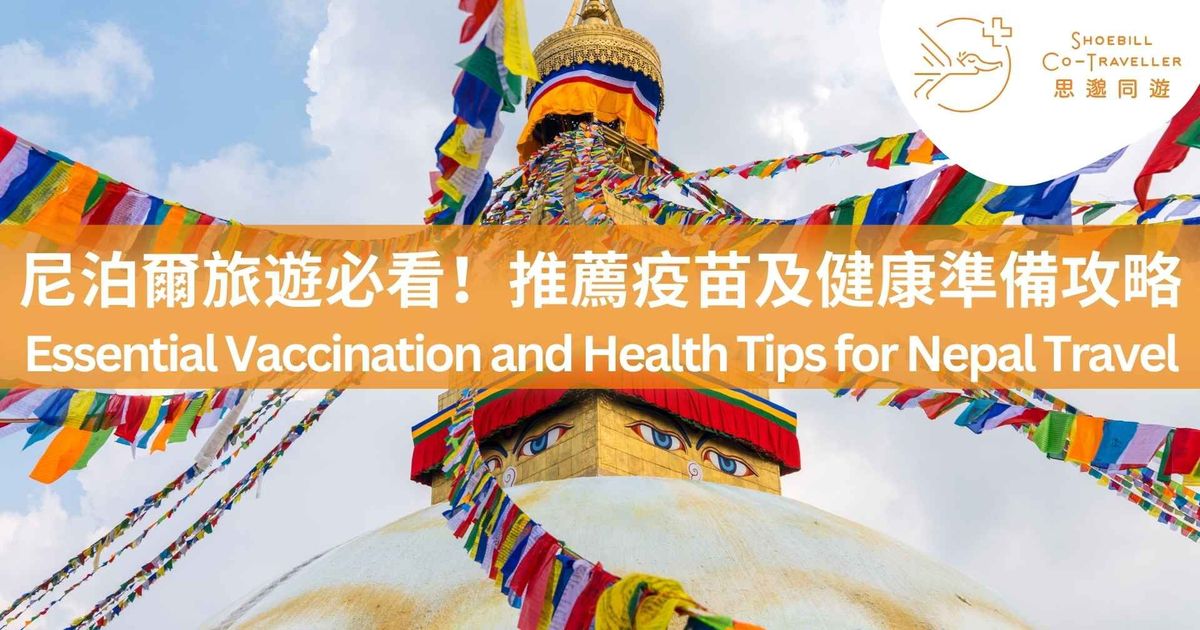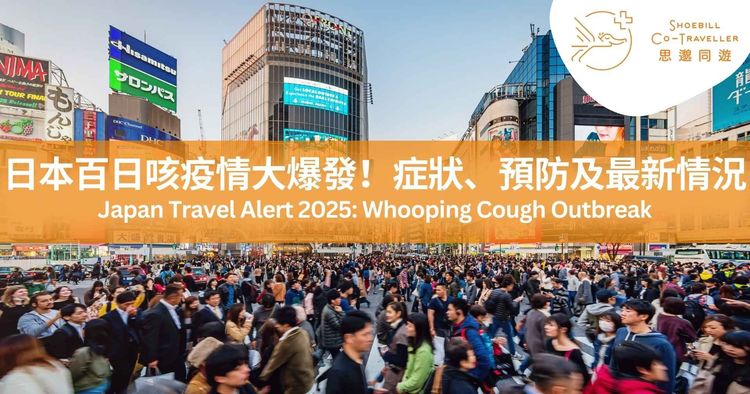
Why Get Vaccinated Before Travelling to Nepal?
Nepal is a country with breathtaking natural landscapes, attracting many travellers from Hong Kong for trekking, adventure, and cultural experiences. However, the local sanitary conditions differ significantly from those in Hong Kong, and the risk of certain infectious diseases (such as hepatitis A, typhoid, and rabies) is higher. Getting vaccinated not only protects your health but also helps prevent illnesses that could disrupt your trip. Below are some common health risks to be aware of:
1. Hepatitis A
Hepatitis A is primarily transmitted through contaminated food and water, especially from street vendors and small eateries. Vaccination can significantly reduce your risk of infection.
2. Typhoid Fever
Typhoid fever is caused by the bacterium Salmonella typhi, typically transmitted through contaminated food or water. Symptoms include high fever and abdominal pain, and severe cases can lead to intestinal bleeding or perforation. Especially recommended for travellers planning to visit small towns or rural areas.
3. Rabies
Rabies is transmitted through bites or scratches from infected animals, such as dogs, bats, and monkeys. Stray dogs are commonly found throughout Nepal's streets, and rabies vaccines may not be readily available locally. Since rabies is nearly 100% fatal once symptoms appear, pre-exposure vaccination is critically important for travellers.
4. Japanese Encephalitis
Japanese encephalitis is transmitted through mosquito bites. Vaccination is recommended for travelers who meet any of the following criteria:
- Planning to stay in endemic areas for 1 month or longer
- Visiting rural or agricultural regions
- Engaging in outdoor activities (e.g., trekking, camping)
- Staying in accommodations without mosquito protection (screens, air conditioning, or bed nets)
5. Measles
Measles is a highly contagious virus spread through airborne droplets. If you haven't been vaccinated against measles before your trip, you may face a risk of infection.
Vaccines Not Required
1. Yellow Fever
Nepal has no risk of yellow fever, so travelers departing from Hong Kong do not need vaccination.
2. Cholera Vaccine
There is currently no active cholera transmission in Nepal, so vaccination is not recommended.
Vaccination Schedule Recommendations
Travellers planning to visit Nepal should consult a professional travel health clinic well in advance. Vaccines require time to build immunity, so early planning is essential. Here are some vaccination recommendations:
- Hepatitis A vaccine: Requires two doses, with the second dose administered 6-12 months after the first. Completion of both doses provides long-term protection.
- Typhoid vaccine: A single dose provides protection for 2-3 years.
- Japanese encephalitis vaccine: A single dose is recommended.
- Rabies vaccine: Two doses are needed, given at 0 and 7 days.
- MMR (measles, mumps, rubella) vaccine: Two doses are required, spaced 28 days apart, providing lifelong immunity.
These are just basic recommendations. For specific vaccination needs, it is best to visit a travel health clinic to assess your itinerary, potential risks, and personal health condition. Additionally, it is advisable to schedule vaccinations at least six weeks before departure to ensure your body has enough time to produce antibodies.
Additional Important Health Precautions
Altitude Sickness Prevention
If travelling to the Himalayan region or Annapurna area:
- Allow sufficient time for altitude acclimatization
- Consider carrying altitude sickness medication (e.g., Diamox)
For an in-depth guide on AMS, check out our dedicated article.
Why Choose Our Travel Health Clinic?
Our clinic specializes in travel health services, offering expert vaccination advice and administration:
- Comprehensive Vaccine Options: We provide necessary vaccinations for travel to Nepal.
- Professional Medical Consultation: Our healthcare team holds international travel medicine certifications and offers personalized advice based on your itinerary and health status.
- Convenient Appointment System: Enjoy transparent pricing and online booking services to save you time.
Conclusion: Nepal Travel Health Checklist
- Get vaccinated against hepatitis A and typhoid
- Outdoor travelers should consider Japanese encephalitis and rabies vaccines
- Prepare mosquito repellent and altitude sickness medication
- Practice food safety – avoid raw/undercooked foods
Planning a trip to Nepal? Ensure your health protection in advance for a safe and enjoyable journey! Schedule your appointment with us today to ensure you are well-prepared for a healthy journey!
📌 More Travel Health Resources:


